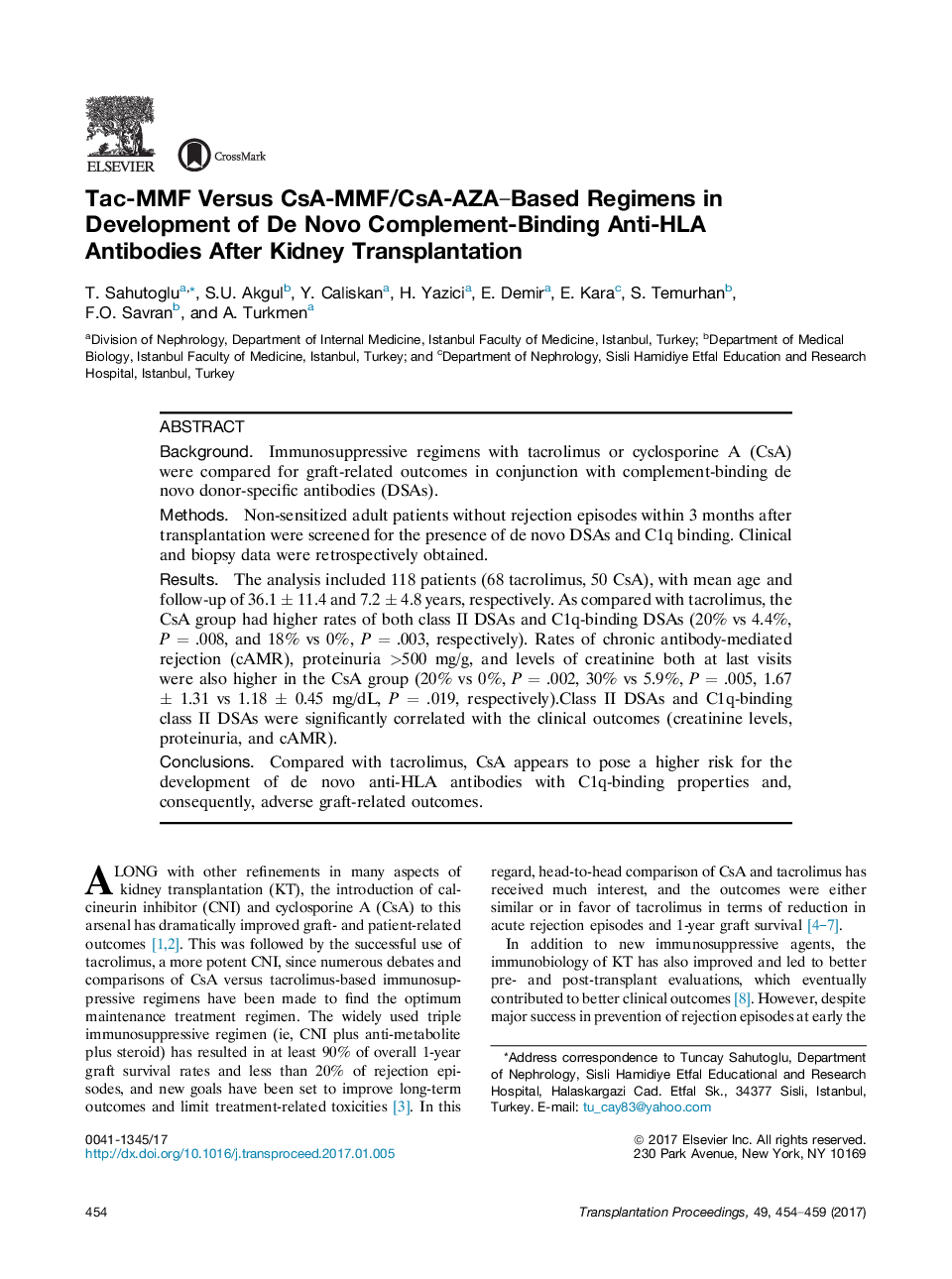| Article ID | Journal | Published Year | Pages | File Type |
|---|---|---|---|---|
| 5728854 | Transplantation Proceedings | 2017 | 6 Pages |
BackgroundImmunosuppressive regimens with tacrolimus or cyclosporine A (CsA) were compared for graft-related outcomes in conjunction with complement-binding de novo donor-specific antibodies (DSAs).MethodsNon-sensitized adult patients without rejection episodes within 3 months after transplantation were screened for the presence of de novo DSAs and C1q binding. Clinical and biopsy data were retrospectively obtained.ResultsThe analysis included 118 patients (68 tacrolimus, 50 CsA), with mean age and follow-up of 36.1 ± 11.4 and 7.2 ± 4.8 years, respectively. As compared with tacrolimus, the CsA group had higher rates of both class II DSAs and C1q-binding DSAs (20% vs 4.4%, P = .008, and 18% vs 0%, P = .003, respectively). Rates of chronic antibody-mediated rejection (cAMR), proteinuria >500 mg/g, and levels of creatinine both at last visits were also higher in the CsA group (20% vs 0%, P = .002, 30% vs 5.9%, P = .005, 1.67 ± 1.31 vs 1.18 ± 0.45 mg/dL, P = .019, respectively).Class II DSAs and C1q-binding class II DSAs were significantly correlated with the clinical outcomes (creatinine levels, proteinuria, and cAMR).ConclusionsCompared with tacrolimus, CsA appears to pose a higher risk for the development of de novo anti-HLA antibodies with C1q-binding properties and, consequently, adverse graft-related outcomes.
